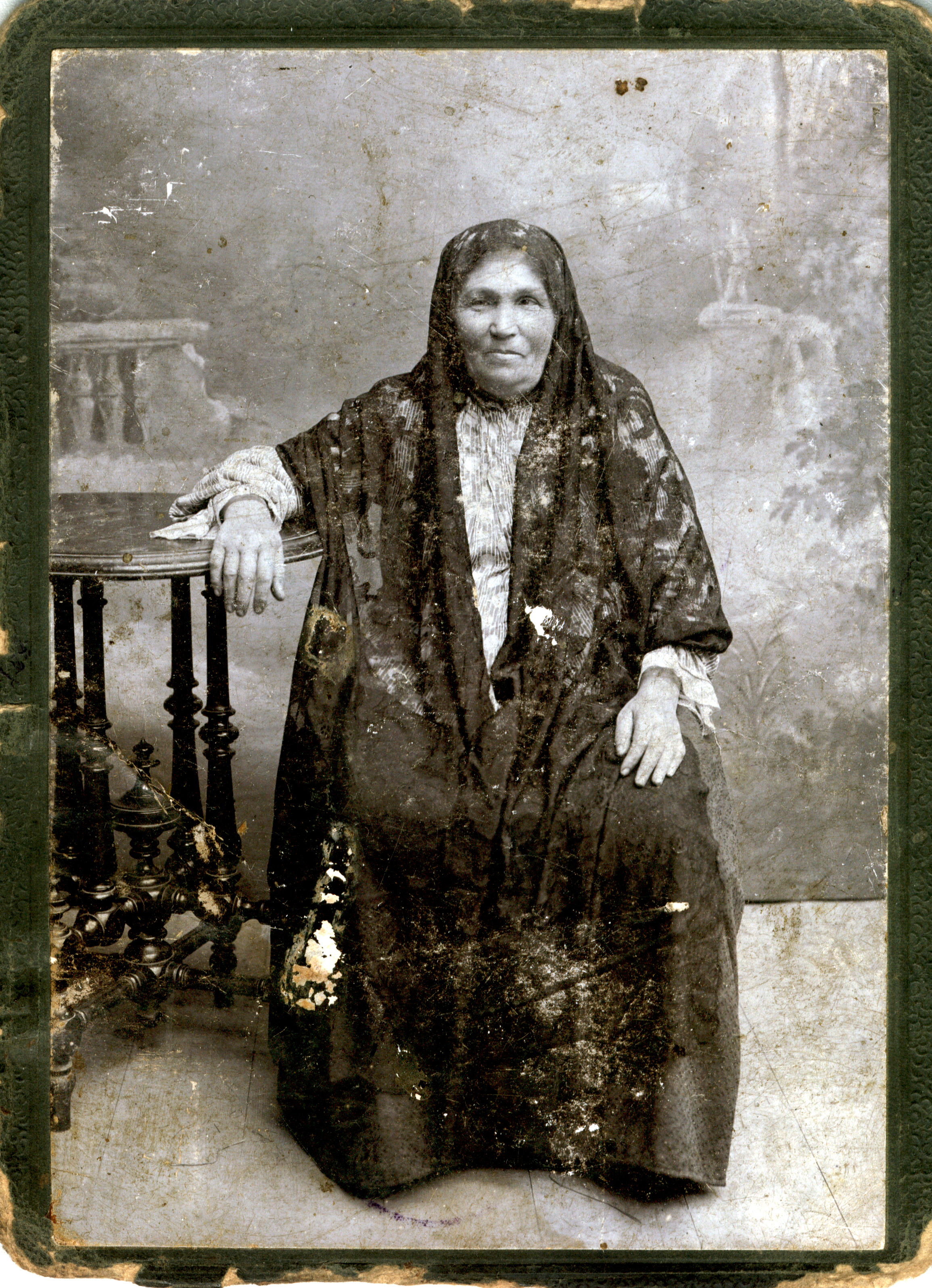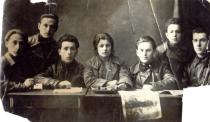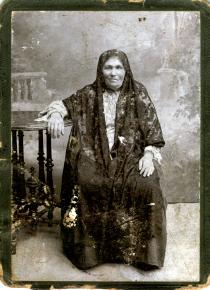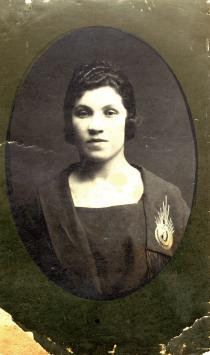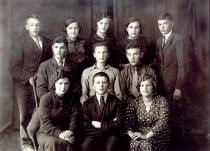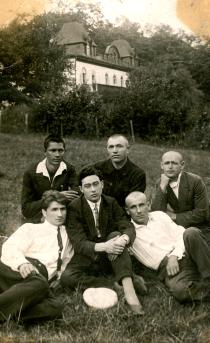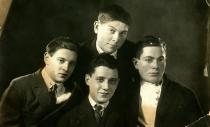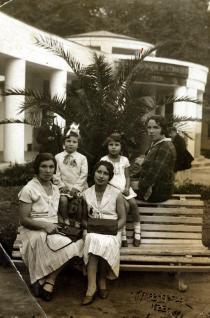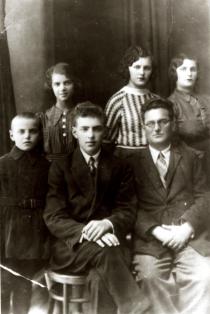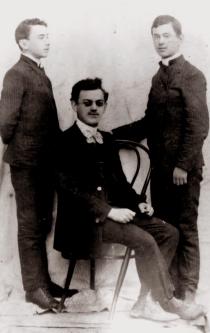My great-grandmother Sonya Grubman (1843-1936). The photo was taken in Kiev.
Great-grandmother had her own place in the synagogue. She lived in a private house on the left bank of the Dnieper River, in an area called Slobodka, with my mother's mother, my grandmother, Sonya Eidelman.
She was always glad to see me and often told me stories about the history, traditions and religion. At home, my great-grandmother no longer worked around the house, but she was a very wise woman, and many people turned to her for advice on how to deal with one or another of life's situations. Great-grandmother was very religious. I don't remember how religious holidays were celebrated at her house, but I know for sure that all the Jewish traditions were kept very strictly while she was still alive.
She was one of the few women at synagogue who could read and understand the Torah, so she read it for the other women who came together in the synagogue, and then explained it to them.
My great-grandmother died in 1936. I remember her funeral very well, first of all, because it was the first funeral ceremony I had ever attended, and secondly, because it was carried out according to Jewish traditions. I remember entering the house on the day of the funeral and saying 'Hello' to everyone. An old Jewish man replied, 'Child, you should not say 'hello' today - you have a dead body in your house'.
My great-grandmother was lying on the floor, on straw, with no coffin. The ceremony included neither music nor flowers. Two candles were lit behind her head and prayers were read out loud by the men, while the women listened from another room. Great-grandmother was taken to the cemetery without a coffin and was buried wrapped in a cloth. I remember that the men said many, many prayers that day, in a language I could not understand. I also remember that my grandmother and my mother tore their dresses. My mother explained to me that this was done in accordance with Jewish law.
